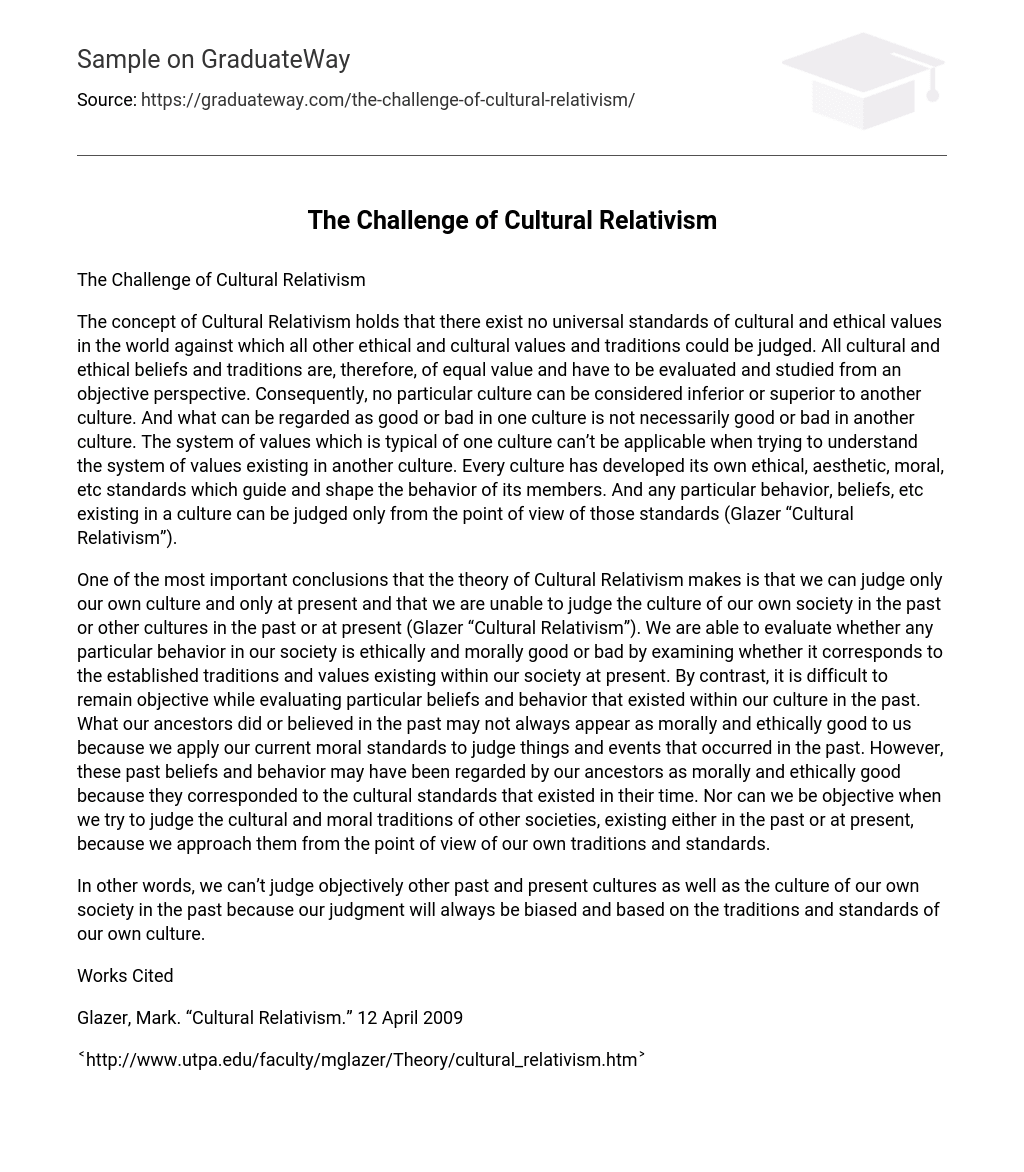The concept of Cultural Relativism holds that there exist no universal standards of cultural and ethical values in the world against which all other ethical and cultural values and traditions could be judged. All cultural and ethical beliefs and traditions are, therefore, of equal value and have to be evaluated and studied from an objective perspective. Consequently, no particular culture can be considered inferior or superior to another culture. And what can be regarded as good or bad in one culture is not necessarily good or bad in another culture. The system of values which is typical of one culture can’t be applicable when trying to understand the system of values existing in another culture. Every culture has developed its own ethical, aesthetic, moral, etc standards which guide and shape the behavior of its members. And any particular behavior, beliefs, etc existing in a culture can be judged only from the point of view of those standards (Glazer “Cultural Relativism”).
One of the most important conclusions that the theory of Cultural Relativism makes is that we can judge only our own culture and only at present and that we are unable to judge the culture of our own society in the past or other cultures in the past or at present (Glazer “Cultural Relativism”). We are able to evaluate whether any particular behavior in our society is ethically and morally good or bad by examining whether it corresponds to the established traditions and values existing within our society at present. By contrast, it is difficult to remain objective while evaluating particular beliefs and behavior that existed within our culture in the past. What our ancestors did or believed in the past may not always appear as morally and ethically good to us because we apply our current moral standards to judge things and events that occurred in the past. However, these past beliefs and behavior may have been regarded by our ancestors as morally and ethically good because they corresponded to the cultural standards that existed in their time. Nor can we be objective when we try to judge the cultural and moral traditions of other societies, existing either in the past or at present, because we approach them from the point of view of our own traditions and standards.
In other words, we can’t judge objectively other past and present cultures as well as the culture of our own society in the past because our judgment will always be biased and based on the traditions and standards of our own culture.
Works Cited
Glazer, Mark. “Cultural Relativism.” 12 April 2009
?http://www.utpa.edu/faculty/mglazer/Theory/cultural_relativism.htm?





